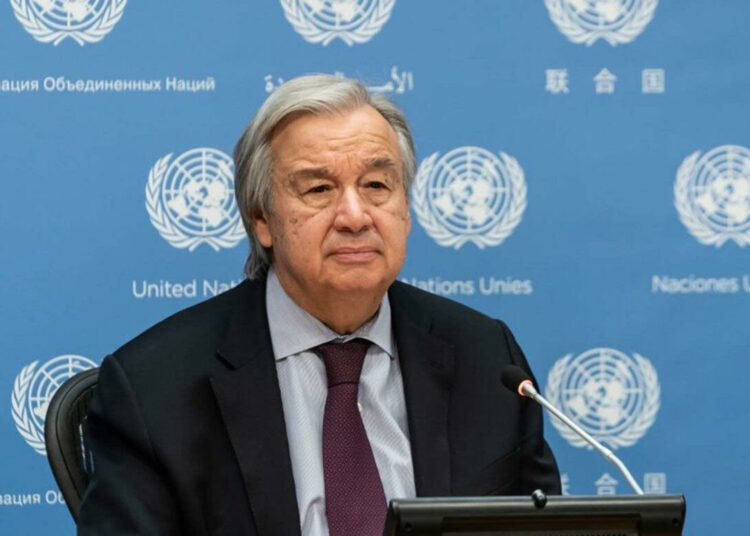The United Nations (UN) has issued a critical call to action for nations worldwide to address the escalating impact of prevalent extreme heat.
Highlighting four key areas of focus, the UN urged the international community to prioritise caring for vulnerable populations, increasing climate finance, protecting workers from heat, and ensuring a total phase-out of fossil fuels.
This urgent appeal comes just one day after the European Union’s Copernicus Climate Change Service (C3C) declared July 21 as the hottest day on record, with July 22 and 23 matching the unprecedented temperature of 17.09°C.
Additionally, C3C reported that June 2024 marked the 12th consecutive month of record-breaking heat, with temperatures surpassing the 1.5°C pre-industrial level.
The severe heatwave has had devastating consequences, with hundreds of hajj pilgrims succumbing to heatstroke during the annual religious ritual in Makkah, Saudi Arabia, and many suffering from same in Morocco.
UN Secretary-General Antonio Guterres, speaking at a press briefing on Thursday, underscored the far-reaching implications of extreme heat.
“Extreme heat is increasingly tearing through economies, widening inequalities, undermining sustainable development goals, and killing people,” Guterres stated.
Guterres noted that pregnant women, people with disabilities, older individuals, and those with illnesses are particularly at risk from soaring temperatures.
He emphasised the importance of boosting protection for the most vulnerable through early warning systems and increasing access to low-carbon and passive cooling solutions.
“It’s also vital to boost protection for the most vulnerable in line with the early warning systems for all initiatives,” he added.
The UN chief also called for a swift and fair phase-out of fossil fuels to mitigate heat-related occupational injuries and safeguard communities from climate chaos.
“Finance to help safeguard communities from climate chaos is essential. And I urge the developed countries to honour their promises and show how they will close the gaping adaptation finance gap,” Guterres said.
He pointed to a new report from the International Labour Organization (ILO) indicating that over 70 percent of the global workforce, approximately 2.4 billion people, is now at high risk of extreme heat, particularly in Asia. “We must step up protection for workers,” Guterres stressed.
Concluding his address, Guterres urged the G20 to redirect fossil fuel subsidies to renewable energy projects, with a particular focus on supporting vulnerable countries and communities.
“Countries must phase out fossil fuels fast and fairly. They must end new coal projects. The G20 must shift fossil fuel subsidies to renewables with the support of vulnerable countries and communities,” he concluded.
We’ve got the edge. Get real-time reports, breaking scoops, and exclusive angles delivered straight to your phone. Don’t settle for stale news. Join LEADERSHIP NEWS on WhatsApp for 24/7 updates →
Join Our WhatsApp Channel










